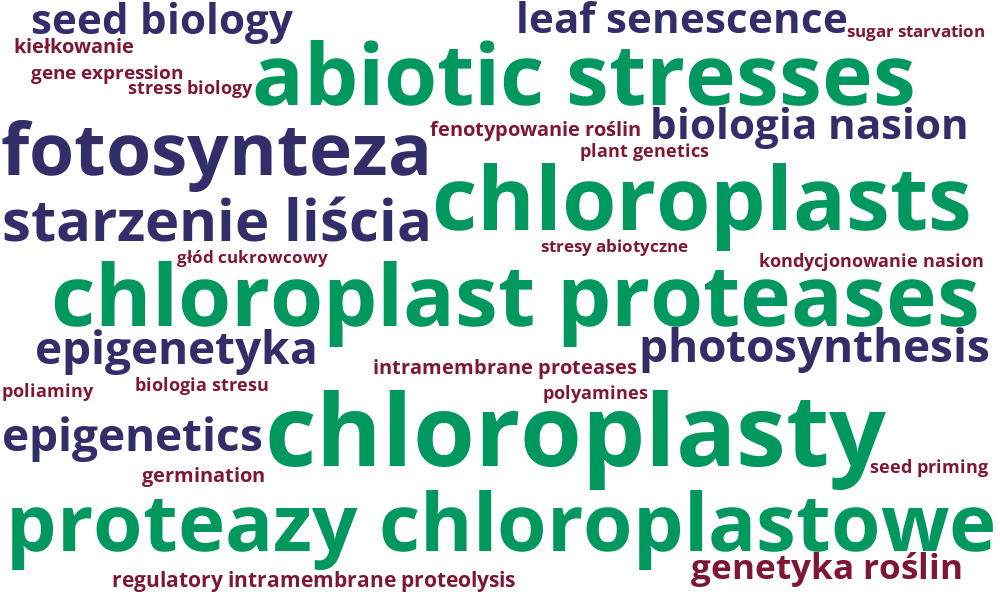Department of Plant Physiology


The research topics of the employees of the Department of Plant Physiology concern the molecular mechanisms of plant metabolism regulation in various stages of ontogenesis and in response to changing environmental conditions.
We conduct research on the Arabidopsis thaliana model plant as well as on arable crops such as barley, rape, lupine and wheat.
The work focuses on the physiological functions of chloroplast proteases, including the intramembrane proteases and intramembrane regulatory proteolysis, and their importance in plant response to abiotic stresses.
Moreover, we study the environmental regulation of plant acclimatization processes based on nitrogen regulators called polyamines, postulating their role as a switch of metabolic networks and a new molecular coordinator of the nitro-oxidative signal.
The conducted research also concerns the physiology and biochemistry of seeds during their development and germination, as well as seed refinement and increasing their tolerance to environmental stresses through pre-sowing priming.
We also study the role of autophagy in activating reserves during seed germination, as well as the importance of autophagy during the aging of plant organs.
We also deal with issues related to the broadly understood phenotyping of plants. There is also a research topic on the cooperation of crop or forest plants with mycorrhizal fungi, in the context of drought stress tolerance and the expression of cell membrane aquaporins.














